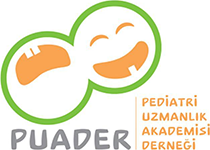Nursing Care of a Child with MOPD II and Moyamoya according to Orem’s Self-care Deficiency Theory: A Case Report
Merve Aşkin Ceran1 , Murat Bektaş2
, Murat Bektaş2
1Kto Karatay University, Vocational School Of Health Services, Dialysis Program, Konya, Turkiye
2Dokuz Eylül University, Fakulty Of Nursing,department Of Child Health And Diseases Nursing, İzmir, Turkiye
Keywords: Moyamoya, Microcephalic Primordial Dwarfism, Child, Nurse, Orem's Self-care Deficiency Theory
Abstract
Microcephalic osteodysplastic primitive dwarfism (MOPDII) is the most familiar form of microcephalic primordial dwarfism (MPD). The classic features of the MPD group are marked microcephaly and severe antenatal and postnatal growth retardation. Such patients also have Moyamoya disease, which includes recurrent stroke attacks and possible neurological complications. Today, it is possible to provide care for such patients with many theories. Caring for children with growth-developmental retardation with Orem's Self-care Deficiency Theory may enable them to become self-aware and increase their quality of life. The significance of nursing care for this rare disease is undeniable. In this study, the nursing care of a patient diagnosed with MOPD2 and Moyamoya was carried out based on the Self-care Deficit Nursing Theory. "Partly remedial nursing care" was provided as the patient can self-care at a moderate level, and also "supportive and educational nursing care" was provided to support the mother and other family members who provide care to the patient.
Cite this article as: Askin Ceran M, Bektas M. Nursing Care of a Child with MOPD II and Moyamoya according to Orem’s Self-care Deficiency Theory: A Case Report. Pediatr Acad Case Rep. 2023;2(1):6-11.
The parents’ of this patient consent was obtained for this study.
The authors declared no conflicts of interest with respect to authorship and/or publication of the article.
The authors received no financial support for the research and/or publication of this article.

